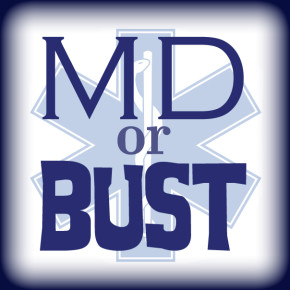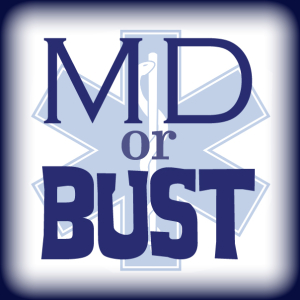 Challah bread is traditionally prepared for Jewish holidays and the Sabbath. We made ours on a Wednesday night.
Challah bread is traditionally prepared for Jewish holidays and the Sabbath. We made ours on a Wednesday night.
Helen and Marie stare warily from their wheelchairs as a dozen medical students file into the retirement home lounge, toting tubs of flour and challah dough. “We’re not playing bingo?” Helen asks, looking disappointed, as students and octogenarians begin matching up for the evening. (She won fifty cents last time.)
“Where are you all from?” Marie asks. I tell her we were students from the medical school, which seems to please her.
“I really admire people doing that. My mother was a nurse, you know.”
“What specialty?”
“Family medicine.”
She smiles approvingly.
The dough is passed out and we roll it into ropes, mashing them together at one end. In its unwoven state, the challah looks like a kind of octopus. A Jewish octopus — “Oy,” Marie says, shaking her head at the thought.
Helen, meanwhile, is having difficulty. Her hands tremble as she attempts to braid the ropes. “I didn’t know we were doing this. I thought we were playing bingo.” My own efforts to assist are decidedly unhelpful, and we assemble what must be the world’s most pitiful challah. “Not exactly the dynamic duo, are we?” Marie looked on bemusedly. She had been a baker at a school cafeteria in the past; the students never tired of her chocolate chip cookies.
We keep braiding, passing strands of dough over and around each other. Marie scans the students around the room and taps my shoulder, her brow furrowed. “Where are you all from?” I am familiar to her, but she can’t quite place me.
After a coating of egg wash and sesame seeds, the woven challahs are whisked to the oven, and the room is transformed. Seniors who would otherwise be in the throes of bingo night are sharing stories with new friends. Marie misses the snowy winters of her Midwestern hometown, where she remembers making snow angels. Helen has a daughter, Lily, who works in advertising. Lily takes her mother to lunch every week. “I’m going to give her my challah,” she resolves.
Marie can’t remember the last time her daughter visited.
Helen points out one of the facility’s administrators, a virile man with thick forearms, who the residents have dubbed ‘Stan the Man.’
“Why do you call him that?” I tease. Helen shoots back, “Just look at him!”
Marie drifts away, her eyes glazed over. Turning back to me, she asks, “Where are you from?”
I try another tack — “Pennsylvania.” She smiles and gestures to the room. “No, no. I mean, where are you all from?” I am reminded that diseases like Alzheimer’s and dementia affect family and friends just as much as they affect patients. But this principle is now visceral to me as I repeat that we are from USF, that we are medical students, and that I am specializing in family medicine.
“That’s good, you know? I really admire people who do that. You know, my mother was a nurse.”
The oven door opens and the air is thick with the aroma of fresh bread. Helen and Marie’s lopsided creations are more elegant in their finished form.
Helen chews on a piece of challah and closes her eyes in satisfaction. She asks if I’d like to take her challah home, until I ask her about Lily. “That’s right, I forgot. I’ll give it to Lily.” Marie looks at me, with more urgency this time. “Where are you all from?”
The evening ends with a group picture, and a woman who was likely student body president in her time directs her fellow residents into formation, somewhat overzealously. “No, no, you stand over here,” she shrills at a sleepy-looking man in suspenders. Helen and Marie look on quizzically. “Who put her in charge?” Helen whispers, proof that high school never really ends.
The facility staff arrives to escort residents to their rooms, and I say my goodbye to Marie and Helen. An aide wheels Helen toward the hallway. “Did you bake that for me?”
Helen stares at the still-warm bread in her lap. There is something she is supposed to do with it. Then she offers it to the aide, who tears off a bite. “Delicious!”
Helen grins, and they head off down the hallway.
On the drive home, we remembered stories of the people we met that night. One gentleman proudly touted his Ohio roots, yet his front door displayed a placard that read: ‘Don’t Mess with Texas.’ (Whether this is a reflection on Texas or Ohio is another debate entirely.) I remembered Marie’s confusion, the empty look in her eyes. Helen’s unsteady hands. In those gnarled, trembling hands I could see those of my grandmother, shaking as she buttons her cardigan, as she guides a steaming cup of tea to her lips. I can hear the bangles on her wrist jingling as she sips. For years, she has asked me, “when you are a physician, can you fix my hands?”
At the very least, we can bake some bread.
Author’s note: All names are pseudonyms.
Numerous studies have documented that medical students lose empathy during clinical years, becoming jaded and pessimistic. This has been linked not only to diminished enjoyment of our work, but also to worse patient outcomes. My goal is to sustain the humanistic values that drive so many of us to medicine, so that, instead of being quelled by cynicism, our idealism can be refined by wisdom.






